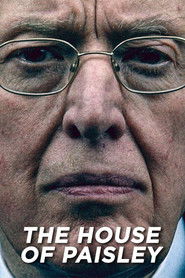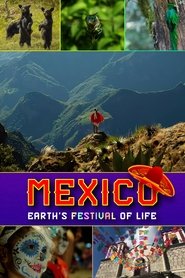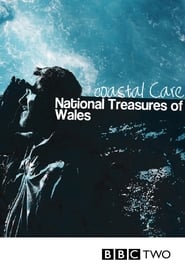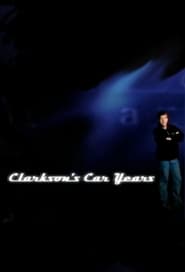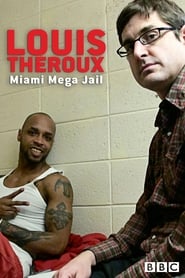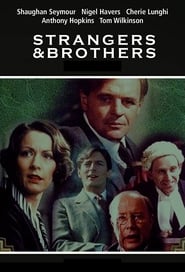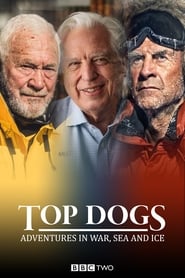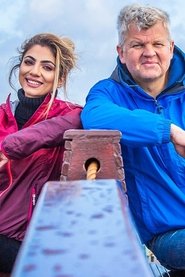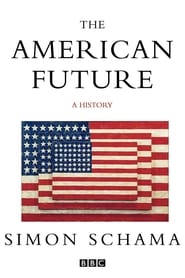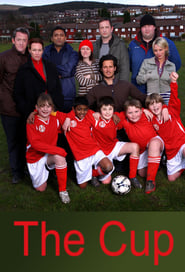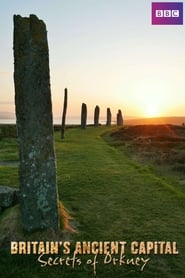Bbc Two TV Series - Page 54
-
The Ferguson Theory
1994
The Ferguson Theory
1994
-
On Thin Ice: Putin v Greenpeace
2024
star 7The story of a daring protest in 2013 on a Russian oil rig that goes terrifyingly wrong as Putin defends his oil at all costs. Shots are fired, and the protesters are thrown into a Russian jail. -
The House of Paisley
2023
The House of Paisley
2023
Preacher, populist, politician - the electrifying rise of the Reverend Ian Paisley. -
Mexico: Earth's Festival of Life
2017
star 8.2The diverse peoples, wildlife, landscape and culture of Mexico are explored by focusing on three distinct worlds, great mountain ranges, tropical forests and scorching deserts. -
National Treasures of Wales
2014
Griff Rhys Jones finds out how the National Trust copes with the complexities and conflicts involved in looking after some of the nation's most-loved treasures. -
Cold Case Investigators: Solving Britain’s Sex Crimes
2024
Every contact leaves a trace. How the latest forensic science is helping detectives catch criminals who have evaded the law for decades. Can their victims finally get justice? -
Clarkson's Car Years
2000
Clarkson's Car Years
2000
Clarkson's Car Years was a television series presented by Jeremy Clarkson and first shown during June and July 2000 on BBC Two. Over the series, Clarkson discusses six different topics relating to motoring, looking at the defining moments of each. The show was produced by BBC Birmingham and executively produced by Richard Pearson. Car Years was the first of two series involving Clarkson which were filmed during his hiatus from Top Gear, and his third documentary series for the BBC, following Motorworld and Extreme Machines. The show was first shown on UK television channel BBC Two, before being shown to an international audience on BBC World. As of 2008, it has regularly been repeated on various UKTV channels, most recently being Dave. -
Celebrity Eggheads
2008
Celebrity Eggheads
2008
Celebrity special of the general knowledge quiz in which teams from across the UK battle to beat the formidable Eggheads -
Spent
2024
star 4.2A former catwalk model is on the run, mainly from herself. Long term it's a story of personal renewal but for now, the stark reality is that her career is over, she's flat broke and she's homeless. -
Louis Theroux: Miami Mega-Jail
2011
star 7.4Louis takes an in-depth look at Miami's jail system, a vast holding pen for the unconvicted where most inmates are awaiting trial. -
Strangers and Brothers
1984
star 5.5As World War II looms in Europe, an ambitious young English lawyer embarks on his tempestuous career, and even stormier romantic life. Based on the novel series of the same name by C.P. Snow. -
Top Dogs: Adventures in War, Sea and Ice
2009
Three iconic adventurers - newsman John Simpson, polar explorer Ranulph Fiennes and solo yachtsman Robin Knox-Johnston - go on a newsgathering trip to war-torn Afghanistan, attempt to sail around the most notorious of all maritime landmarks, Cape Horn, situated at the southernmost tip of South America, and man-haul sledges across the frozen sea ice of the Canadian Arctic. -
Darwin's Dangerous Idea
2009
star 8.3Andrew Marr explores how Darwin's theory of evolution by natural selection has taken on a life of its own far beyond the world of science. -
Mary Berry's Easter Feast
2016
star 8Mary shares her favourite Easter recipes, such as hot cross buns, simnel cake and roast lamb, and takes a look at how Christian communities all over the world celebrate Easter with special food. -
The 80s with Dominic Sandbrook
2016
Dominic Sandbrook takes a fresh look at a dynamic decade. 1980s Britain changed in everything from politics and sport to fashion and popular culture. -
Our Coast
2020
Our Coast
2020
Adrian Chiles, Mehreen Baig and a team of experts explore the spectacular coastlines linked by the Irish Sea, and meet the people who call them home. -
Welcome to Lagos
2010
Welcome to Lagos
2010
Welcome to Lagos is a British three-part mini-series which originally aired on BBC Two in April 2010. Narrated by David Harewood, the observational documentary series looked at life in the urban environment of Lagos. -
The American Future: A History
2008
The American Future: A History is a four-part documentary series written and presented by Simon Schama which aired on BBC Two in the UK during October 2008, in the run up to the 2008 US presidential election. The first episode was broadcast on BBC Two at 9:00pm on 10 October 2008, and it was shown over four consecutive Fridays. The series saw Schama travelling through the United States as he investigated the conflicts from its past in order to understand the country's contemporary political situation. Schama presents and discusses both presidential candidates, Democratic Barack Obama and Republican John McCain from a historical point of view, emphasizing strongly the former. The documentary takes viewer to an epic journey through the history of the modern United States, but it also why Schama personally believed Barack Obama would be the ideal choice as the next president of the United States. -
The Cup
2008
The Cup
2008
The Cup is a British television programme starring Steve Edge, Pal Aron and Jennifer Hennessy. It is based on the Canadian TV series The Tournament. The show is presented as a mockumentary, and features an Under-11s football team aiming to succeed in a prestigious national tournament - amidst friction between the various parents and club staff. -
Britain's Ancient Capital: Secrets Of Orkney
2017
Neil Oliver, Chris Packham, Andy Torbet and Dr Shini Somara join hundreds of archaeologists from around the world who have gathered in Orkney to investigate at one of Europe's biggest digs.


